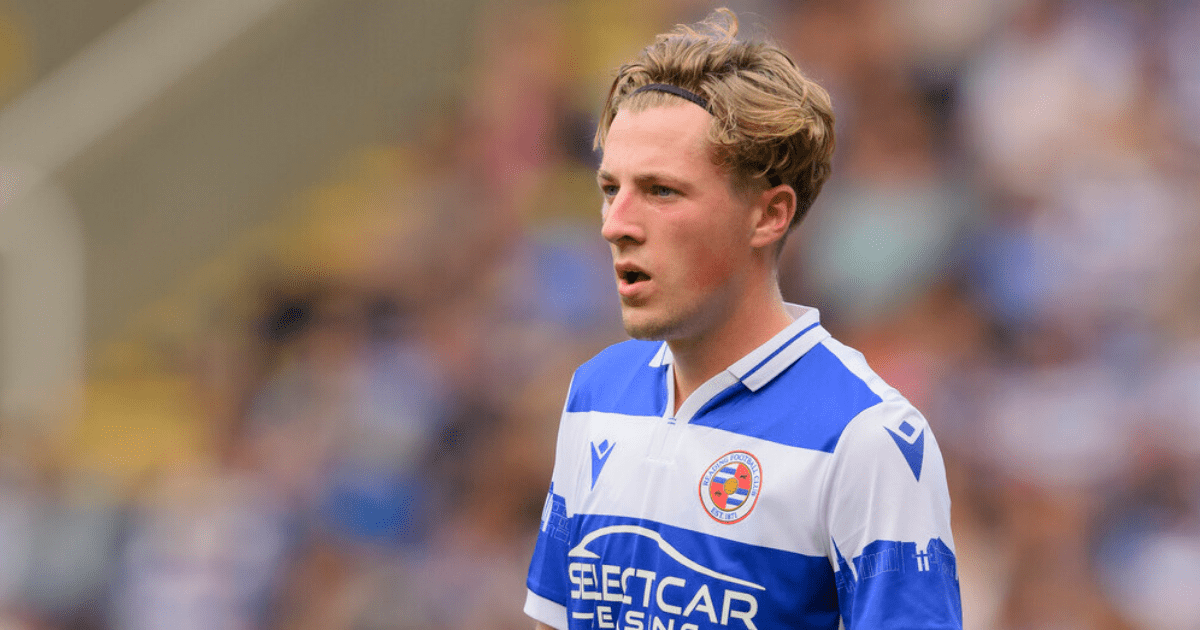Reading Football Club may be forced to part ways with 20-year-old midfielder Charlie Savage this month, just six months after signing him. The son of former Premier League star Robbie Savage joined Reading on a free transfer from Manchester United last summer. Despite making 28 senior appearances this season, Savage could now be on the move again.
Club Chief Dayong Pang Looks to Cut Costs
According to The Guardian, under-pressure Reading chief Dayong Pang is planning to sell several players, including Savage, in an effort to reduce costs. Pang is reportedly set to sanction these sales as the club faces financial challenges.
Triggering a Pay Rise
Savage's playing time is currently limited to 14 League One starts because playing one more game would trigger a £2,000-a-month pay rise. This financial factor could be influencing the club's decision to consider selling him.
Other Players on the Chopping Block
Reading has already sold Tom Holmes to Luton Town, and a bid for Nelson Abbey has been accepted. However, Abbey has chosen not to leave the Madejski Stadium. Tyler Bindon is also rumored to be on the list of players potentially being sold.
Cost-Cutting Measures
In order to reduce expenses, Reading staff have been instructed to modify training plans. Players have been asked to minimize the usage of the one pitch with undersoil heating, and manager Ruben Selles has been urged to adjust training schedules or utilize the gym instead. Suppliers, including data company StatsPerform and catering firm Levy, have also withdrawn their services due to the club's financial situation.
Ownership Protest
Reading's recent League One match against Port Vale was abandoned due to a pitch invasion by fans protesting against the club's ownership. Owner Dai Yongge is now attempting to sell the club, adding to the uncertain future facing Reading Football Club.
Frequently Asked Questions
How does a football goalkeeper become proficient?
Becoming an excellent goalkeeper requires special training that focuses on agility, positioning, and reflexes. Goalkeepers need to be adept at stopping shots, controlling the penalty box through punching and catching, and also distributing with both their feet and hands. Goalkeeping requires the goalkeeper to have a high level of mental resilience and decision making under pressure. They must also communicate effectively with their defense. For goalkeepers, consistent practice, constructive criticism from coaches, and an analysis of performances for improvement are all essential.
What is the best way to defend yourself against an offensive team that’s strong?
It is important to have a disciplined strategy when defending against an offensively strong team. Tactics such as forming a solid defence, maintaining a tight team formation and applying a disciplined scoring system are essential. Forcing opposing attackers toward the sidelines rather than the center can limit their scoring opportunities. Communication between defenders is key, as are quick defensive transitions when possession has been lost. The counter-attacking strategy can then be employed to exploit any openings that may occur as the offensive team commits its players forward.
What is the meaning of the football offside rule?
The offside rule is a fundamental aspect of football aimed at preventing players from gaining an unfair advantage. A player in offside is one who has any part (head, body, feet) in the opposition’s half, which is closer to opponent’s line of goal than both the player and ball. Being in an offside situation is not a crime unless the player interferes, gains advantage or actively participates in the game.
What importance do you place on a player’s diet or nutrition?
The nutrition of football players is essential to their performance and recovery. A healthy diet is important for energy and muscle repair. Dehydration will also affect your performance. Specific nutrition strategies and timing can change depending on your training schedule and matches. Consulting a sports dietician to develop customized dietary plans is often helpful.
What are some strategies I can use to keep motivated and focused while improving my football abilities?
To stay motivated and focused, it is important to set clear goals that you can achieve and track your progress. Reviewing performance during training sessions and matches on a regular basis can identify strengths that need to be developed and areas where improvement is needed. Finding a trainer or joining an online community can create supportive relationships and encourage persistence. Maintaining a positive attitude and visualizing the success you want to achieve can also be powerful motivational techniques. To keep practice engaging, incorporate variety into your training routines. Allowing for enough rest and recuperation is another important strategy to maintain motivation.
Statistics
- A consistent mental focus regimen, including visualization techniques, can enhance player concentration levels by up to 20% during matches.
- Studying match footage for at least 4 hours a week can lead to a 10% improvement in a player’s tactical awareness on the field.
- Defensive units that practice coordinated drills together at least twice a week concede 18% fewer goals in match play.
- Players who train for more than 10 hours a week show a 20% improvement in technique compared to those who train for less time.
- Football players who follow a structured fitness regimen can see up to a 7% increase in their on-field speed and agility benchmarks.
External Links
ussoccer.com
myfootballcoach.com
bbc.co.uk
topendsports.com
uefa.com
How To
How to sharpen your football shooting technique
Improving your shooting technique involves various types of finishing such as power shots, placement shots, and volleys. For a more diverse finishing technique, try shooting from different distances and angles. Use drills to simulate realistic game situations, such as receiving the ball while facing away from goal or finishing quickly. Analyzing the body mechanics of top strikers and practicing with purpose, focusing on your stance, balance, and ball contact, will also contribute to a more effective and varied shot repertoire.

